Homeostasis
Homeostasis is the body's ability to maintain a stable internal environment despite external changes. It involves the regulation of various physiological processes to keep conditions within a narrow range, ensuring the body functions properly.
Components of Homeostasis
There are three main components of homeostasis:
- Receptors: These are specialized cells that detect changes in the internal or external environment.
- Control Center: The control center processes the information received from the receptors and determines the appropriate response.
- Effectors: These are cells or organs that carry out the response to restore the internal environment to its optimal state.
Examples of Homeostasis
Here are some examples of homeostasis in the human body:
- Temperature Regulation: The body maintains a constant internal temperature through processes such as sweating and shivering.
- Blood Sugar Regulation: Insulin and glucagon work together to regulate blood sugar levels, ensuring they remain within a healthy range.
- Water Balance: The kidneys regulate the body's water balance by adjusting the amount of urine produced based on hydration levels.
Study Guide
Here are some key points to remember when studying homeostasis:
- Understand the role of receptors, control center, and effectors in maintaining homeostasis.
- Be familiar with specific examples of homeostasis in the human body, such as temperature regulation and blood sugar control.
- Study the feedback mechanisms involved in homeostasis, including negative and positive feedback loops.
- Learn about the various physiological processes that contribute to homeostasis, such as hormone regulation and fluid balance.
- Understand the significance of homeostasis in maintaining overall health and well-being.
Remember to review these key concepts and practice applying them to different scenarios to solidify your understanding of homeostasis.
[Homeostasis] Related Worksheets and Study Guides:
.◂Science Worksheets and Study Guides Kindergarten. Weather
Coloring Worksheet Calendar
Calendar  Coloring Worksheet
Coloring Worksheet Calendar
Calendar  Coloring Worksheet
Coloring Worksheet Day and Night
Day and Night  Coloring Worksheet
Coloring Worksheet Day and Night
Day and Night  Coloring Worksheet
Coloring Worksheet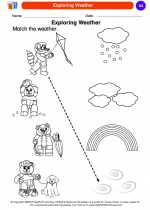 Exploring Weather
Exploring Weather  Coloring Worksheet
Coloring Worksheet Exploring Weather
Exploring Weather  Coloring Worksheet
Coloring Worksheet Look at the Clouds
Look at the Clouds  Coloring Worksheet
Coloring Worksheet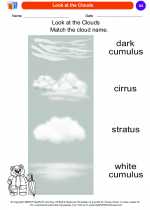 Look at the Clouds
Look at the Clouds  Coloring Worksheet
Coloring Worksheet Moon & Stars
Moon & Stars  Coloring Worksheet
Coloring Worksheet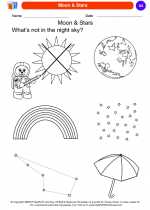 Moon & Stars
Moon & Stars  Coloring Worksheet
Coloring Worksheet Natural Events
Natural Events  Coloring Worksheet
Coloring Worksheet Natural Events
Natural Events  Coloring Worksheet
Coloring Worksheet Sun and Shadows
Sun and Shadows  Coloring Worksheet
Coloring Worksheet Sun and Shadows
Sun and Shadows  Coloring Worksheet
Coloring Worksheet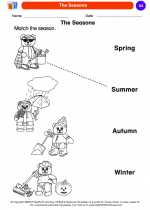 The Seasons
The Seasons  Coloring Worksheet
Coloring Worksheet The Seasons
The Seasons  Coloring Worksheet
Coloring Worksheet Things in the Sky
Things in the Sky  Coloring Worksheet
Coloring Worksheet Things in the Sky
Things in the Sky  Coloring Worksheet
Coloring Worksheet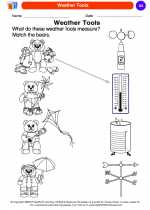 Weather Tools
Weather Tools  Coloring Worksheet
Coloring Worksheet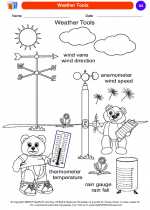 Weather Tools
Weather Tools 

 Coloring Worksheet
Coloring Worksheet
 Coloring Worksheet
Coloring Worksheet
 Coloring Worksheet
Coloring Worksheet
 Coloring Worksheet
Coloring Worksheet
 Coloring Worksheet
Coloring Worksheet
 Coloring Worksheet
Coloring Worksheet
 Coloring Worksheet
Coloring Worksheet
 Coloring Worksheet
Coloring Worksheet
 Coloring Worksheet
Coloring Worksheet
 Coloring Worksheet
Coloring Worksheet
 Coloring Worksheet
Coloring Worksheet
 Coloring Worksheet
Coloring Worksheet
 Coloring Worksheet
Coloring Worksheet
 Coloring Worksheet
Coloring Worksheet
 Coloring Worksheet
Coloring Worksheet
 Coloring Worksheet
Coloring Worksheet
 Coloring Worksheet
Coloring Worksheet
 Coloring Worksheet
Coloring Worksheet
 Coloring Worksheet
Coloring Worksheet

The resources above cover the following skills:
EARTH AND SPACE SCIENCE (NGSS)
Earth’s Systems
Students who demonstrate understanding can:
Use and share observations of local weather conditions to describe patterns over time.